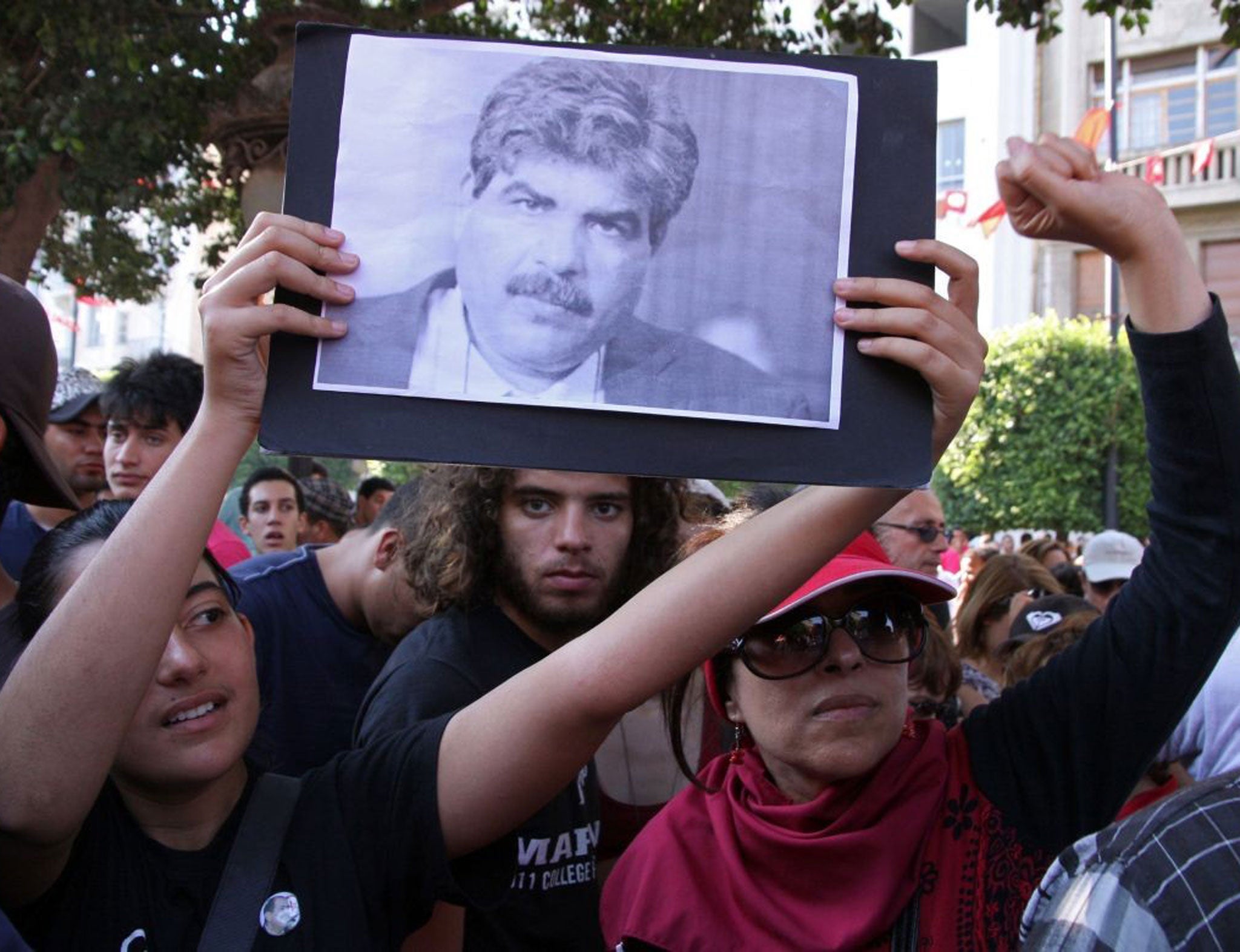Unions launch strike in Tunisia over Mohamed Brahmi assassination
All flights to and from the country cancelled

Tunisia has been hit by further protests and a general strike, in reaction to the assassination of Mohamed Brahmi - which still threatens to derail the transition to democracy in the birthplace of the Arab Spring.
Thousands took to the streets in protests across the country yesterday, and unions called a general strike and further protests for today, aiming to cripple the government, public transport and commerce.
Shops and banks have put up shutters in anticipation of violence in the capital, and Tunisair yesterday announced that all flights to and from the country today will be cancelled.
Mr Brahmi, the leader of the opposition Movement of the People party, was gunned down outside his home in front of his wife and youngest daughter. It was the second assassination of an opposition politician this year, only five months after the killing of prominent secular MP Chokri Belaid.
Mr Brahmi was a member of the National Constituent Assembly, which is finalising the drafting of the new constitution for Tunisia. His party is a member of the left-leaning Popular front coalition, to which Mr Belaid also belonged.
The party told the Associated Press that it is postponing his funeral, initially planned for today, for fear it could inflame supporters on an already tense day.
Brahmi's family said the funeral would take place on Saturday and he would be buried near Belaid's tomb.
Mr Brahmi was a vocal critic of the ruling Ennahda party, a moderate Islamist party which became part of the government following the overthrow of Tunisia’s former leader Zine al-Abidine Ben Ali in 2011.
Divisions between Islamists and their secular opponents have deepened since the popular uprising against Ben Ali, which unleashed unrest across the Arab world, unseating rulers in Egypt, Libya and Yemen, and leading to a civil war in Syria.
Subscribe to Independent Premium to bookmark this article
Want to bookmark your favourite articles and stories to read or reference later? Start your Independent Premium subscription today.

Join our commenting forum
Join thought-provoking conversations, follow other Independent readers and see their replies